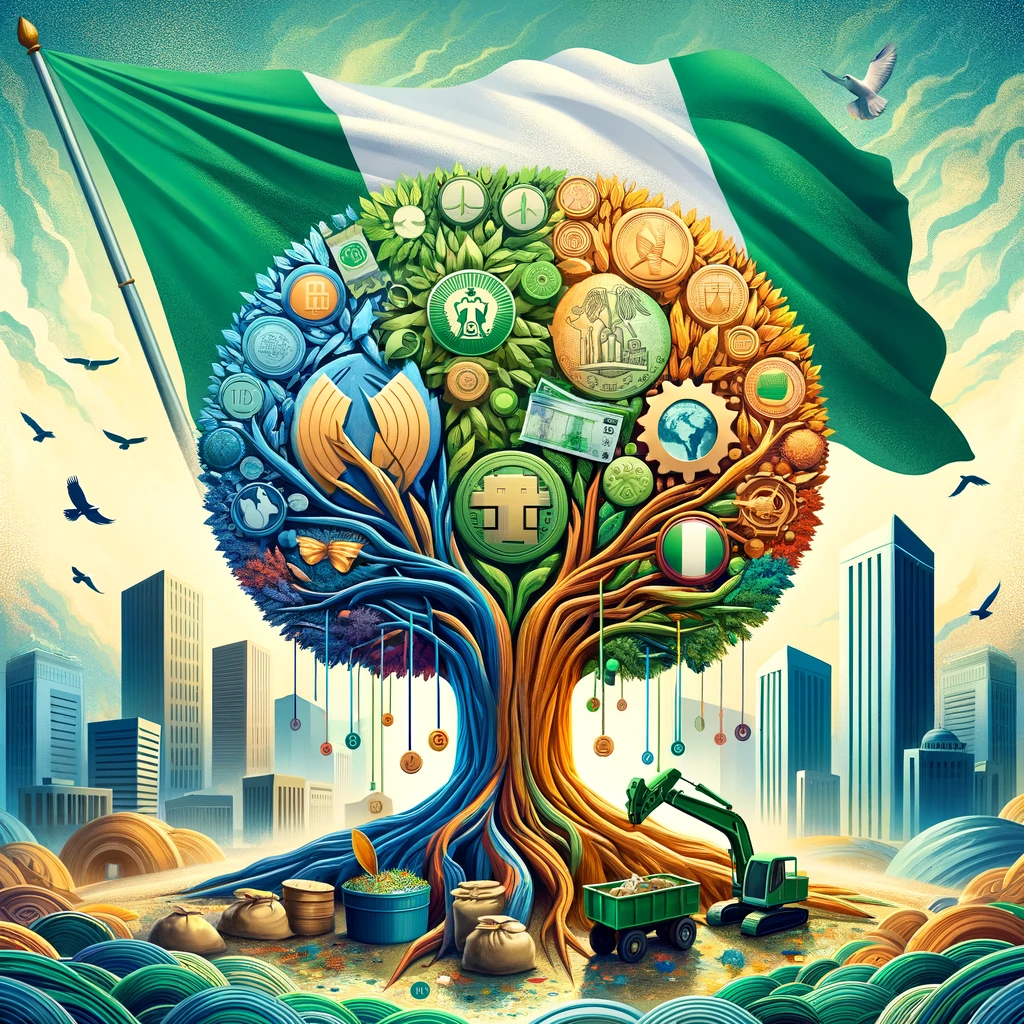Nigeria’s economic scene is showing signs of revival, sparked by a series of bold financial strategies by the Central Bank of Nigeria (CBN) and the fresh policies of President Bola Tinubu. The country’s currency, the naira, is showing promising strength, and here’s the lowdown on what’s happening and why it’s a big deal.
Let’s kick things off with the recent bond auctions that have caught the eyes of foreign investors. The CBN recently auctioned off a whopping 1.053 trillion naira (that’s about $682 million) in three-month to 12-month bills. Now, get this: nearly 80% of these were snapped up by foreigners. Why? Because the yields were irresistibly high, thanks to a massive interest-rate hike aimed at boosting the naira. The 12-month notes were going for a yield of 21.5%, a huge jump from the previous rate. This much interest from foreign investors is a clear thumbs-up to the CBN’s strategies from the global investment community.
But that’s not all. The CBN didn’t just stop with tweaking auction yields. They went all-in by hiking the benchmark policy rate by a surprising 400 basis points, bringing it up to 22.75%. This move wasn’t just for kicks; it was a calculated effort to attract foreign capital, prop up the naira, and by extension, stabilize Nigeria’s economy. And guess what? It’s working. The naira appreciated by 2.9% in official trading, and dollar liquidity saw a significant uptick. It’s like watching a well-coordinated dance between policy adjustments and market reactions, and so far, the rhythm looks good.
Now, onto a more controversial chapter in Nigeria’s economic reform drama:- fuel subsidies. For ages, Nigeria had this system that made petrol prices ridiculously cheap, thanks to government subsidies. While it was great for the wallet, it wasn’t exactly sustainable. Enter President Bola Tinubu, who, right after taking office, decided to cut these subsidies. This move was like flipping a switch, triggering a domino effect on the economy. The intentions were good—aligning with economic orthodoxy and winning nods from the World Bank and the IMF. But things have been crazy since then, with gas prices rising and the value of the naira falling sharply.
The subsidy cut was a bold move, no doubt, but it left many wondering if it was too much too soon. The ripple effects were immediate: soaring fuel prices, escalating food and transport costs, and a currency that seemed to be in a freefall. This has stirred a lot of debates, criticisms, and even a stern editorial questioning the wisdom behind the decision. It’s a classic case of economic shock therapy, where the cure seems almost as daunting as the disease.
But here’s where it gets even trickier. Despite the economic turmoil, investment in Nigeria hasn’t picked up as expected. The government’s efforts to attract foreign dollars, improve oil production, and beef up tax collection haven’t quite turned the tide. Investment levels are lagging, growth is stuttering, and the overall economic climate remains tense.
Critics argue that while cutting subsidies might boost government revenue, the real challenge lies in how that money is spent. Others point out the need for a more nuanced approach to subsidy removal, suggesting that tackling corruption within the subsidy system could have softened the blow. Amidst these criticisms, there’s an undercurrent of concern over potential social unrest if the current hardships persist.





